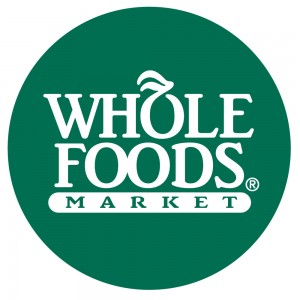The brand name of a company is it’s most essential weapon in the competitive world market. It is used to differentiate firms from the competition and to inform customers of their goals. A successful company must not only have a strong brand name but also a consistent value proposition. Within Sahir Shivj’s blog post “Target Canada Making a Comeback“, he analyzes the downfall and shortcomings of Target in Canada by criticizing their shift from providing products at a low cost in America to charging more in Canada. This falter in brand promise resulted in an inconsistent brand name in the minds of Canadian consumers. Sahir outlines that as consumers began to look elsewhere for their shopping needs, Target realized that a shift back to its core values was the only way to stay in business. Taking into account this real life example of the importance of consistency of value propositions, I have gained a better understanding of what Al Ries and Jack Trout were explaining in the article “Positioning”. They concur that a company that has a previously established brand that is successful in a market must not falter or change because consumers will always have that first impression as their idea of that company and inconsistency portrays weakness. I agree with Sahir that Target must continue to improve and return back to its core values in order to continue in Canada’s market.
Monthly Archives: September 2014
The Science of product failure
In class we have been analyzing various companies looking for strengths and weaknesses that either launch a company into success or drag its net worth down. In the article “From healthy fries to segways: Why most products fail” Susan Krashinsky outlines why 72% of product launches fail. Surprisingly, it seems that most sources of fault come from neglect of simple market research and planning. Even large companies with the resources to invest in research and development sometimes fail to put in enough time. The author used Segway’s launch to illustrate how analyzing pricing is essential in determining whether or not the sales of the product would be high enough at the set price. Segway launched at too high a price resulting in low sales. Personally this article raises awareness about the difficulty facing a company marketing a new product. Its one thing to market a product that is an improvement on a past model, which make up almost all successful launches (iPhone 6) but convincing consumers of the need for this new product and introducing it into the highly competitive market is daunting. In class we have learned about the delicate nature of a young business and this article explains that a company must have the experience and recourses to put in enough research, development, and marketing to better prepare for the highly competitive markets.
Original article:
http://www.theglobeandmail.com/report-on-business/industry-news/marketing/burger-kings-failed-healthy-fries-campaign-not-unexpected/article20680200/
Whole Foods Market Buisness Ethics
 Whole Foods Market Business Ethics
Whole Foods Market Business Ethics
A business cannot survive without the support of its stakeholders. As Freeman’s Stakeholder Theory points out, you need the involvement of customers and communities as well as happy employees, financiers, and suppliers. A working business can survive without one of these things but it will not thrive in its environment and will most likely face decline. Following a code of business ethics by being responsible to all stakeholders will help keep a corporation afloat. Whole Foods Market prides its self on providing its customers with healthy and environmentally conscious products sourced from many local and organic suppliers. Its new efforts to help The Cooking and Gardening program in Berkeley’s Unified school District will educate children and families on making healthy food choices while working hands on in gardens with the foods they eat. By investing in the well-being of the community’s students, they are satisfying parents who are also customers and employees. They are helping the reputation of the company and thus its value by following through on its goals and values, which satisfies finances and suppliers. Developing a strong statement on its goals for community or environmental improvement seems to me to be the best strategy for a business to portray its responsibility and trustworthiness to consumers.
 Original Article
Original Article
http://media.wholefoodsmarket.com/news/Berkeley-USD